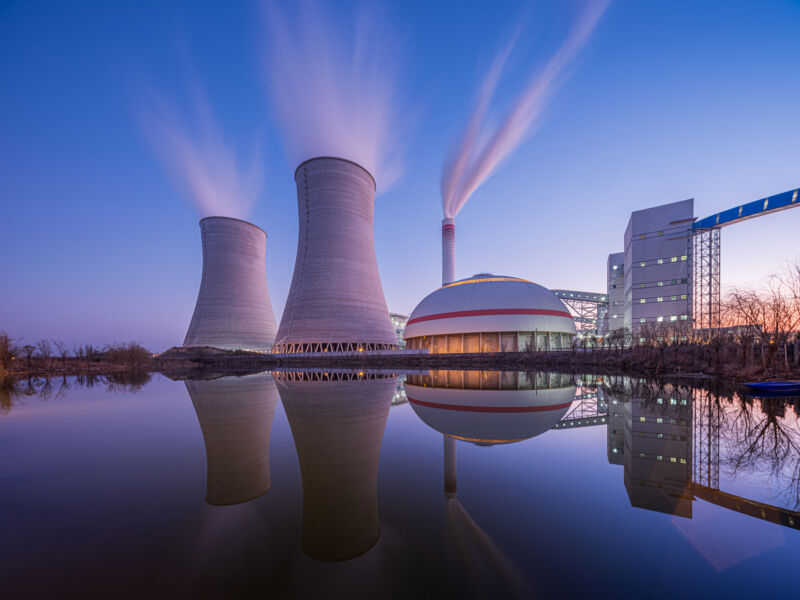Congress passes bill to jumpstart new nuclear power tech

Earlier this week, the US Senate passed what’s being called the ADVANCE Act, for Accelerating Deployment of Versatile, Advanced Nuclear for Clean Energy. Among a number of other changes, the bill would attempt to streamline permitting for newer reactor technology and offer cash incentives for the first companies that build new plants that rely on one of a handful of different technologies. It enjoyed broad bipartisan support both in the House and Senate and now heads to President Biden for his signature.
Given Biden’s penchant for promoting his bipartisan credentials, it’s likely to be signed into law. But the biggest hurdles nuclear power faces are all economic, rather than regulatory, and the bill provides very little in the way of direct funding that could help overcome those barriers.
Incentives
For reasons that will be clear only to congressional staffers, the Senate version of the bill was attached to an amendment to the Federal Fire Prevention and Control Act. Nevertheless, it passed by a margin of 88-2, indicating widespread (and potentially veto-proof) support. Having passed the House already, there’s nothing left but the president’s signature.
The bill’s language focuses on the Nuclear Regulatory Commission (NRC) and its role in licensing nuclear reactor technology. The NRC is directed to develop a variety of reports for Congress—so, so many reports, focusing on everything from nuclear waste to fusion power—that could potentially inform future legislation. But the meat of the bill has two distinct focuses: streamlining regulation and providing some incentives for new technology.
The incentives are one of the more interesting features of the bill. They’re primarily focused on advanced nuclear technology, which is defined extremely broadly by an earlier statute as providing any of the following:
-
- (A) additional inherent safety features
- (B) significantly lower levelized cost of electricity
- (C) lower waste yields
- (D) greater fuel utilization
- (E) enhanced reliability
- (F) increased proliferation resistance
- (G) increased thermal efficiency
- (H) ability to integrate into electric and nonelectric applications
Normally, the work of the NRC in licensing is covered via application fees paid by the company seeking the license. But the NRC is instructed to lower its licensing fees for anyone developing advanced nuclear technologies. And there’s a “prize” incentive where the first company to get across the line with any of a handful of specific technologies will have all these fees refunded to it.
Winners will be awarded when they have met any of the following requirements: the first advanced reactor design that receives a license from the NRC; the first to be loaded with fuel for operation; the first to use isotopes derived from spent fuel; the first to build a facility where the reactor is integrated into a system that stores energy; the first to build a facility where the reactor provides electricity or processes heat for industrial applications.
The first award will likely go to NuScale, which is developing a small, modular reactor design and has gotten pretty far along in the licensing process. Its first planned installation, however, has been cancelled due to rising costs, so there’s no guarantee that the company will be first to fuel a reactor. TerraPower, a company backed by Bill Gates, is fairly far along in the design of a rector facility that will come with integrated storage, and so may be considered a frontrunner there.
For the remaining two prizes, there aren’t frontrunners for very different reasons. Nearly every company building small modular nuclear reactors promotes them as a potential source of process heat. By contrast, reprocessing spent fuel has been hugely expensive in any country where it has been tried, so it’s unlikely that prize will ever be given out.
https://arstechnica.com/?p=2032883